Star Wars’ Oscar Isaac on Marvel’s Moon Knight, mental health and his wacky English accent
Oscar Isaac thought he’d had enough of action blockbusters, but a dual role in Marvel’s dark, deeply weird Moon Knight literally changed his mind.
SmartDaily
Don't miss out on the headlines from SmartDaily. Followed categories will be added to My News.
Oscar Isaac thought long and hard before joining the Marvel Cinematic Universe in Moon Knight.
The Golden-Globe winning actor was at a point where he thought he might have had his fill of huge, fantastical, action-packed epics, thanks to his roles as Poe Dameron in Star Wars and Duke Leto Atreides in the Oscar-winning Dune, and was on the hunt for a change of pace.
“When it first came my way, I was excited but also I wasn’t sure because I just had Star Wars and I had done these bigger films and I wanted to go back to more psychological, character-driven stories,” Isaac says.
Isaac has made a habit of mixing things up in his career, juggling blockbusters such as Robin Hood and X-Men: Apocalypse with quirky black comedies Inside Llewyn Davis and Suburbicon and acclaimed dramas Scenes From a Marriage and the Australian-made Balibo (for which he won the 2009 Best Supporting Actor AACTA Award for playing East Timorese politician Jose Ramos Horta).
But in taking the title role in Moon Knight, Isaac was intrigued by the prospect of making “a character-driven psychological story in the world of the MCU”.
The character, making his screen debut in the six-part Disney+ limited series, is one of the more obscure superheroes in the Marvel stable and certainly one of the oddest.
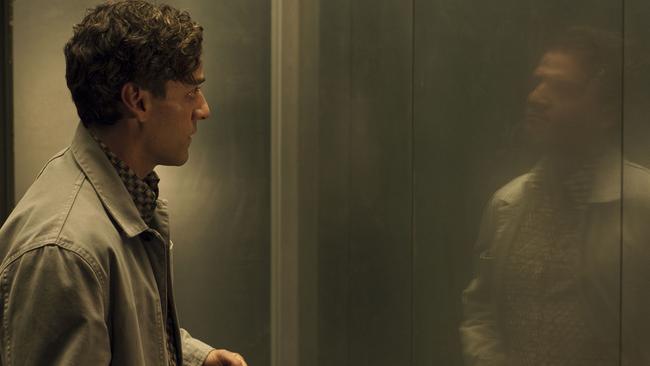
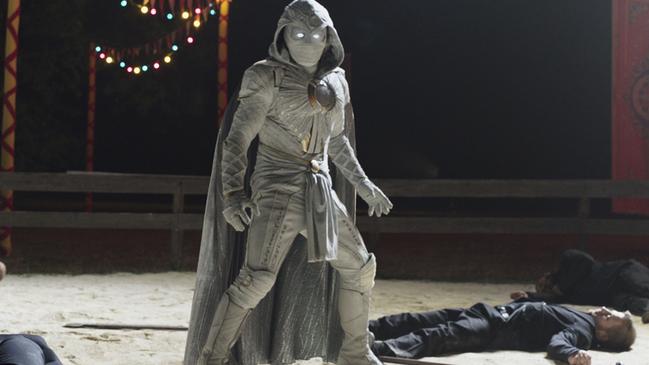
Isaac effectively plays several roles in Moon Knight, as a man with dissociative identity disorder (DID) who becomes the conduit for the Egyptian god of the moon, Konshu, and gains superhuman powers by summoning a special suit of armour.
The dominant personalities are Marc Spector, a highly trained American mercenary, and Steven Grant, a highly-strung Londoner who works in the gift shop at the British Museum. The wildly different personalities are in a constant struggle for control of the body, presenting Isaac with the challenge of coming up with different accents, postures, mannerisms and fighting styles to reflect who is in charge at any given time.
Isaac started with the nerdy, insecure Steven, and found that he could crack up his two children by affecting a slightly whiny, English accent.
The bold, slightly off-kilter take has riled some corners of the internet but Marvel head honcho Kevin Feige was a fan, so it stayed, prompting Isaac to devour hours of English television and study comedians such as Russell Kane, Ricky Gervais and Karl Pilkington.
“I started thinking about him and his humour and it felt like there was an opportunity to do a certain kind of humour that I love, which is that very dry, English humour where you don’t know if the person knows they are being funny and the chance for a character who can kind of take the piss out of the whole situation,” he says.
The two different characters, who often talk to each other as Steven slowly becomes aware of his alter ego and the Egyptian god that binds them together, also had to move and fight differently.
Trained fighter and former boxer Mark is more contained and willing to take a beating, whereas the inexperienced Stephen is less predictable and has less experience with the suit, which gives them super strength and agility.
“I imagined Steven as taller than Mark,” Isaac says.
“So I wanted to walk like a tall person that wishes they weren’t so tall. That was part of what I was thinking about and the way he holds his clothes and holds his body – someone that wants to take up less space but can’t. And then Mark is someone that is much more like a piece of stone.”
Despite all Isaac’s preparation, however, flipping between the two characters proved to be easier said than done.
“At first I asked if we could just not do Mark and Steven on the same day,” Isaac says.
“In fact, really, for a while, it felt like the first month and a half or maybe two months, I basically just stayed with Steven and slowly, as I got more of a handle on Mark, I started to get a little more comfortable being able to switch up during the same week and then eventually on the same day and eventually in the same scene. So it was a process of getting more mentally flexible and physically between the two.”
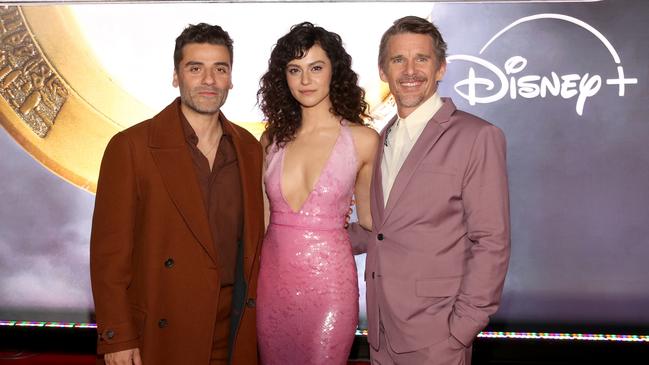
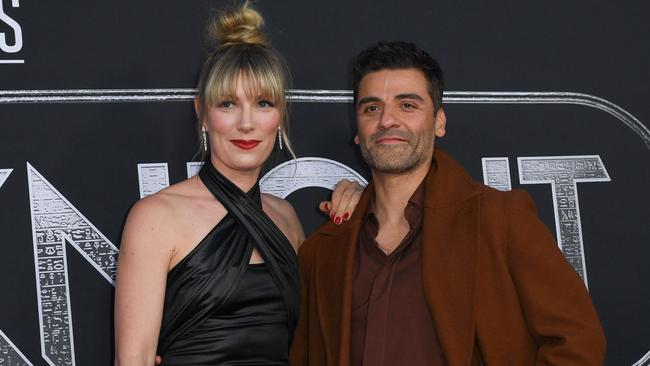
With its central theme of mental illness, Moon Knight skews a lot darker than many of the MCU television spin-offs, which to date have included WandaVision, The Falcon and the Winter Soldier, Loki and Hawkeye.
DID is a real condition – often the result of abuse or trauma – that has been questionably portrayed on screen in the past thanks to the premise that one of the personalities must be somehow villainous (think Gollum/Smeagol in The Lord Of the Rings or the narrator/Tyler Durden in Fight Club).
Isaac says every care was taken to ensure the condition was represented sensitively in Moon Knight rather than milked for entertainment value in the rollicking tale of ancient Egyptian gods and warring factions of zealots, led by Ethan Hawke’s cult leader Arthur Harrow.
“The mental health aspect of it was the most important thing and to make sure that everything connected to that,” says Isaac.
“Really the whole story is a journey of someone integrating the different parts their existence together and that is really the only way to live a healthy life once you know that you have dissociative identity disorder.
“It doesn’t go away but you find a way to integrate those things so that everyone’s working together. That was a really important part of the story.”
Isaac also hopes having a central character like Moon Knight in an MCU television spin-off – and the profile and reach that comes with it – also presents an opportunity to talk about mental health issues more broadly.
“I’ve had friends, family members that have dealt with it, and I don’t know anyone who doesn’t,” he says.
“It’s unfortunate that it’s still a bit taboo to talk about, or people don’t want to admit it. But it’s just like having high blood pressure or having a problem with any other organ.
“Sometimes your brain is not working for whatever reasons in the ways that you want it to. And there shouldn’t be any shame about that.”
Moon Knight is now streaming on Disney+
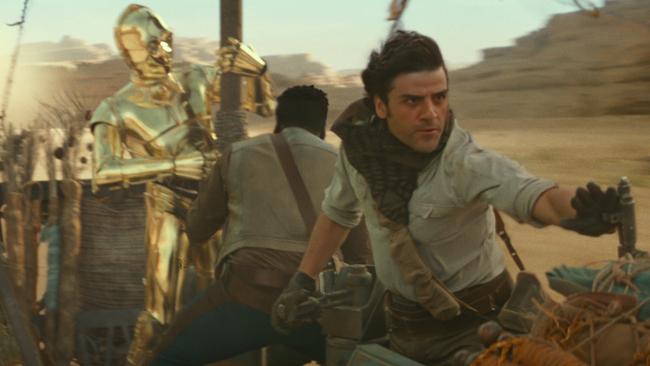
KING OF THE DESERT
There was a lot that was new to Oscar Isaac in bringing Moon Knight to the screen for the first time – but one thing was eerily familiar.
The production took the actor back to the Wadi Rum in Jordan for the third time, having already filmed desert scenes in Star Wars and Dune at the ancient site.
“It’s such an extraordinary part of the world and to think that three projects pretty much back to back happened in the Wadi Rum desert is so wild. And it’s coincidence – I had no control over that other than saying yes to the parts. And even then I didn’t know they would be shooting in the Wadi Rum desert.”
The famous desert site – also known as Valley of the Moon – has been a film favourite for decades. Lawrence Of Arabia put it on the map in 1962 and it has since featured Transformers: Revengers of the Fallen and Aladdin, as well as subbing in for Mars in The Martian and Red Planet among others.
“It’s such a special place and particularly going up to Petra,” says Isaac.
“It’s such a spiritually rich area and when you go out there it’s no wonder that all these prophets come out of the desert. You really feel your scale there and your place in the universe.”
More Coverage
Originally published as Star Wars’ Oscar Isaac on Marvel’s Moon Knight, mental health and his wacky English accent




